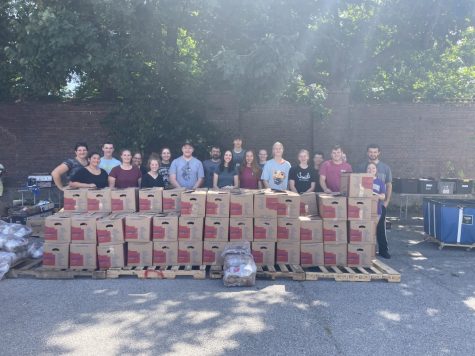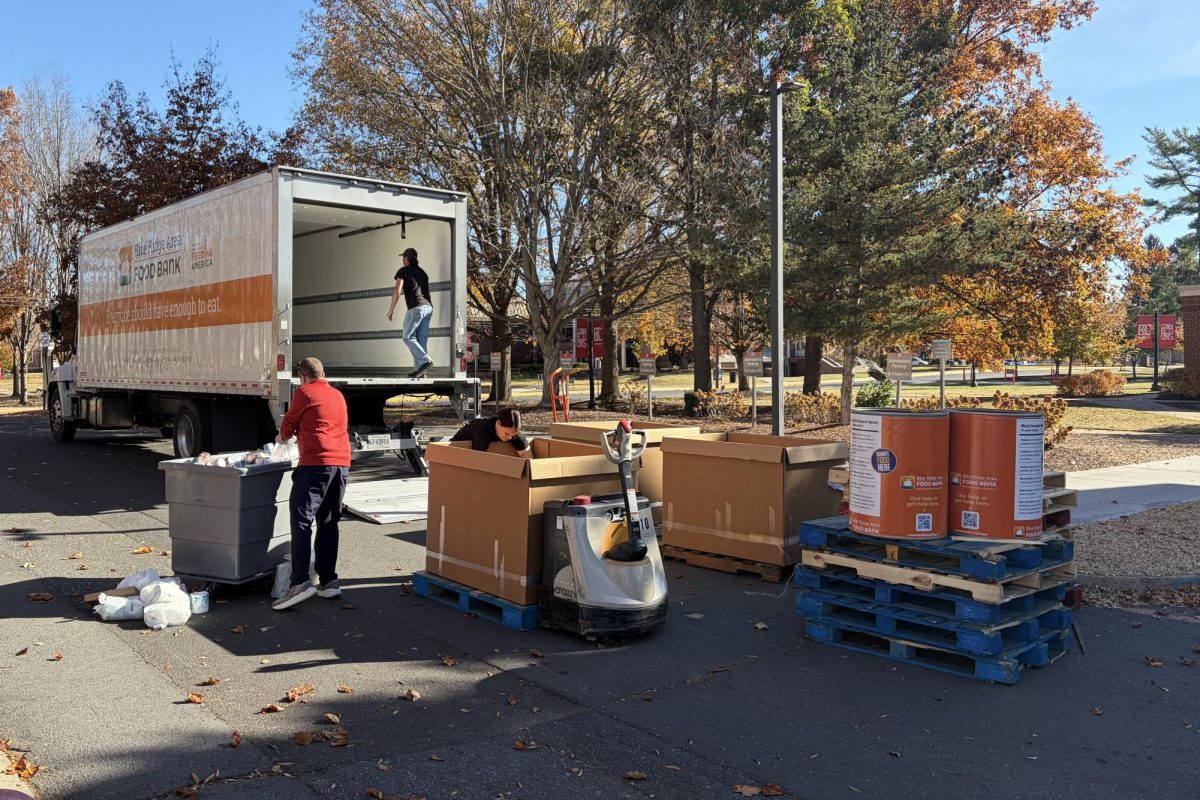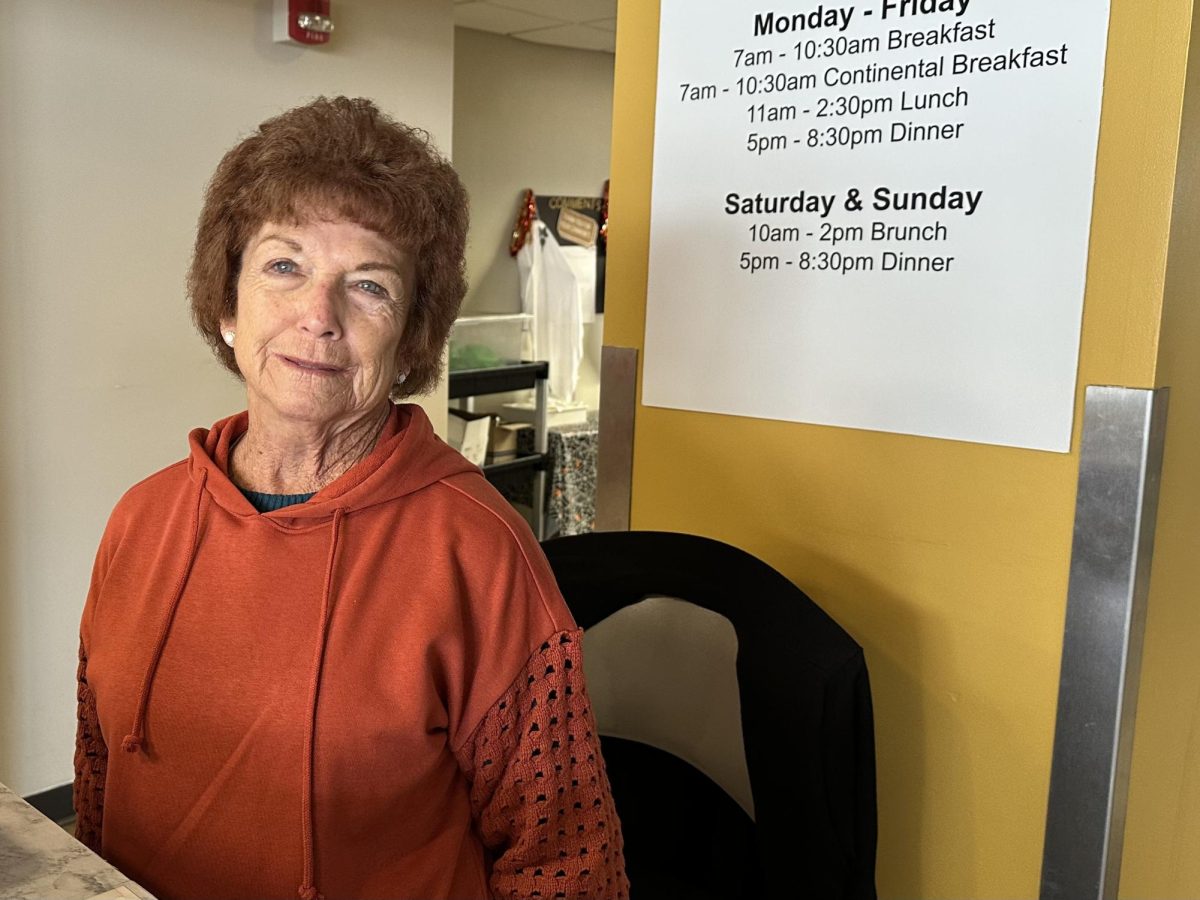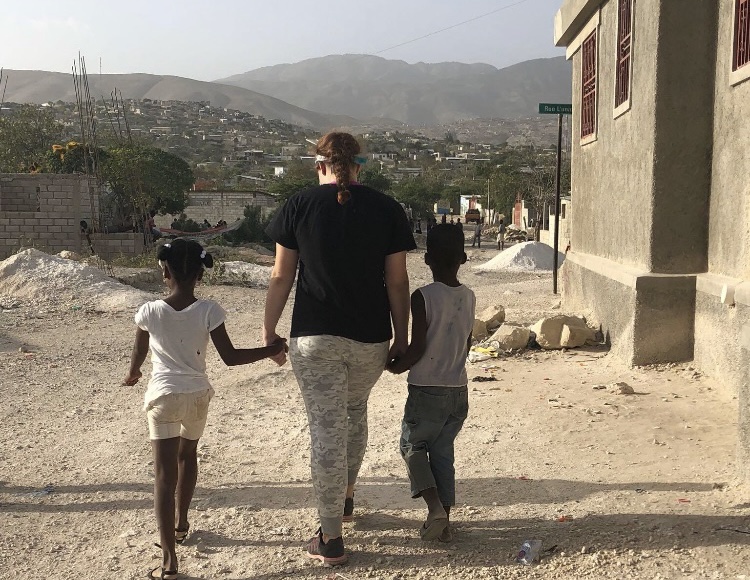Helping Others Can Raise Your Mental Health
October 11, 2022
Approximately 73% of students experience a mental health crisis during their years at college.
College is supposed to be the “best years of your life,” and ten years from now, most of us will look back and try to remember the fun times we had, the events we went to, the sport we played and the friends we made. However, underneath all of these circumstances, almost three-quarters of us are suffering.
There are days when basic care seems like too much of a struggle, or the things we love to do are not appealing. Piles of homework, meetings, tests, papers and social responsibilities weigh down college students every day. Almost a third of college students report that high levels of depression cause trouble functioning.
“Many people suffer from more than one mental disorder at a given time. In particular, depressive illnesses tend to co-occur with substance abuse and anxiety disorders,” said the John Hopkins School of Medicine.
Of substance abuse among college students, one of the most common uses is alcohol. One in three college students participated in binge-drinking in the past month. The dangers of alcohol abuse are many, and the effect it has on mental health is detrimental.
Along with mental health, other major problems include homelessness, hunger, pollution and poverty.
In the United States, on any given night, 326,000 people are in a homeless shelter, and this does not include the number of homeless on the streets. Four out of ten were in a family with children.
Ten percent, or roughly eight million people in the world, are at risk of starvation. Additionally, three million children under the age of five die annually from pollution and other environmental manners.

How Are These Connected?
There is no doubt that mental health, the environment, hunger, homelessness and poverty are some of the biggest issues in today’s society. Although mental health is based on emotional needs, it is still connected to other global issues in the world.
What if there is a way to combat the physical and mental problems in the world? I strongly believe from statistics and personal experience that there is.
Community service and the act of serving others are scientifically proven to raise mental health.
According to the National Library of Medicine, “8.54% increase in mental health, 9.08% in physical health, 7.35% in life satisfaction and 11.11% in social well-being, as well as 4.30% decrease in depression” were seen in an adult experiment in Texas.
Growing up, my family actively encouraged me and others around me to serve and make the world a better place.
While out in my community and beyond, I was able to see the positive changes being made. My own emotional and physical health is heightened while given the opportunity to put others before myself and show love to communities that need it.
While my mental health increases, so does the surrounding environment. The more people that are involved with helping others, the less scary the obstacles of the world are. Helping others allows me to forget about my own problems and create a sense of pride in knowing that my hands will directly help those in need.
I would have never been able to meet the wonderful people of Haiti, Louisville, Houston, Washington D.C. and New York if I did not actively seek out to serve them. I have learned so much about different cultures, backgrounds and ways of living than I ever would have if I did not actively make the choice to do so.
In return for the personal benefits from service, I have left behind houses, new friends, clean up, full stomachs and warm clothes in the places I have been.

How to Get Involved in Service
Although wonderful, you do not have to travel across the world or spend hours of your time to make someone’s life better. There are small ways to benefit others around you.
1. Smile at those who are having a bad day.
It is scientifically proven that smiling, even if it is fake, can boost your mood and produce a happier environment around you. So by smiling at others, you boost your own and another person’s mental health.
2. Hold the door open for the people behind you.
Holding the door for someone, although it may just seem like the right thing to do, also gives you a feeling of accomplishment all while making someone else’s day easier.
3. Pick up trash you find outside.
Along with the sense of accomplishment, going outside can boost mental and cognitive health. Not only do you feel happier and healthier, but what is left behind benefits society as a whole.
4. Volunteer for an organization that you are passionate about.
Knowing where your skills lie is a good way to start this task. If you are good with your hands, help build houses after a natural disaster or help move furniture for an elderly woman. If you can connect with people on an emotional level, volunteer for a crisis line or listen to what others need to get off of their chests.
All acts of service can look different, but they all leave a similar impact.
5. Just get out there!
Finding motivation may be hard when mental health is low, but only you can help yourself feel better, so get moving! Join a club or talk with your friends about how you can make an impact in a small way, and keep moving on to bigger projects.
By choosing to take the first steps for better mental health, keep in mind all the ways you can make the world a better place.























































